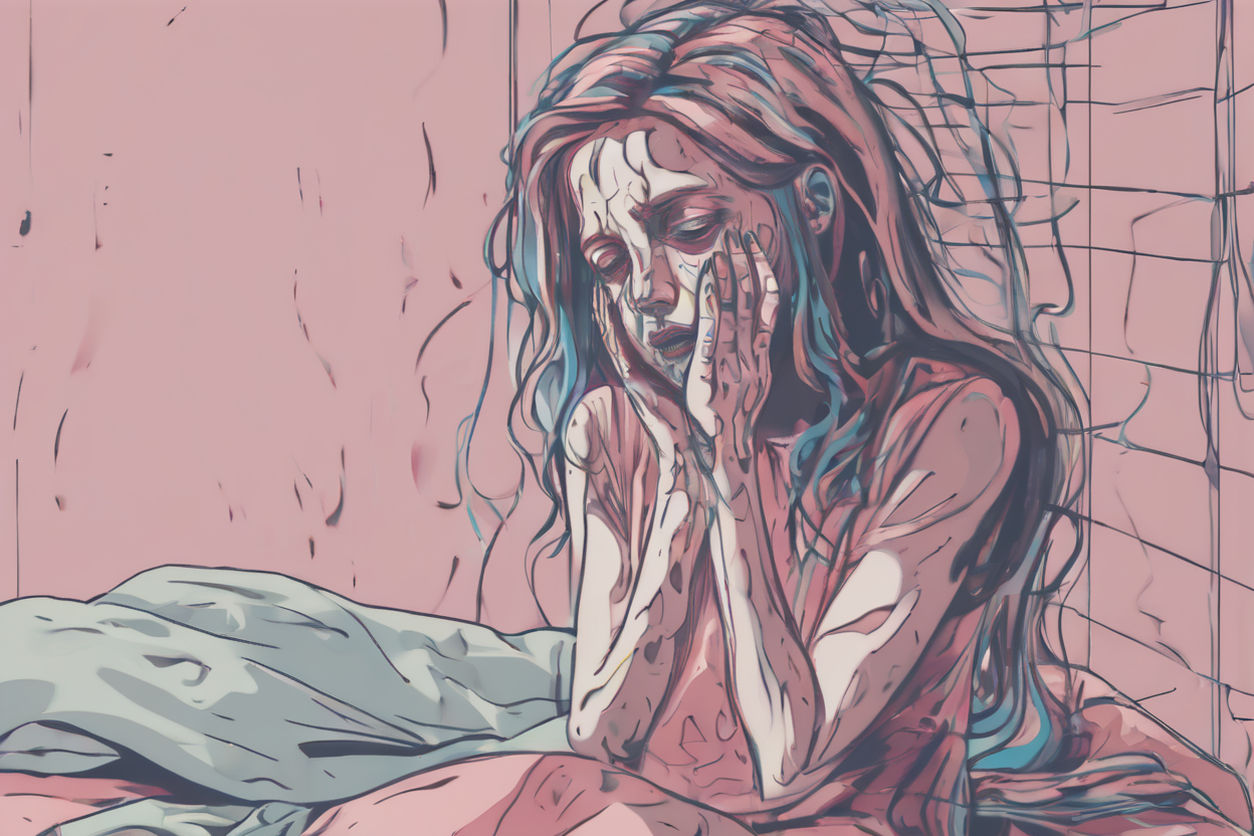Are Vivid Dreams a Sign of Mental Illness? Understanding the Science, Significance, and Spiritual Views

Strong 8k brings an ultra-HD IPTV experience to your living room and your pocket.
Vivid dreams are intensely lifelike experiences marked by rich colors, intricate details, and heightened emotions, often lingering in our memory long after we wake. These dreams typically occur in the REM (Rapid Eye Movement) stage of sleep when brain activity resembles wakefulness.
Despite their vivid nature, dreams themselves are generally not considered signs of mental illness. Mental health experts emphasize that for vivid dreams to hold clinical relevance, they must co-occur with other behavioral, cognitive, or emotional symptoms. On their own, these dreams are often natural reflections of our anxieties, stresses, or unresolved issues rather than symptoms of a psychological disorder.
Nonetheless, certain mental health conditions, including anxiety, depression, PTSD, and bipolar disorder, are associated with more frequent and often distressing vivid dreams. Studies reveal that individuals with these conditions may experience heightened REM activity and intensified emotional dreams that echo their real-life fears or traumas. For instance, approximately 80% of people with PTSD report vivid, recurring nightmares that replay traumatic events, indicating unresolved inner conflict. Additionally, the neurobiological aspect of mental health shows that imbalances in neurotransmitters such as serotonin and dopamine, which regulate mood and sleep, can amplify REM activity, leading to more emotionally charged dreams.
Research indicates that nearly 55% of adults experience occasional vivid dreams, a common phenomenon that doesn’t necessarily indicate a mental health issue. However, when paired with other symptoms, these dreams can signal underlying psychological concerns. From a cultural and religious viewpoint, vivid dreams have been given significant meanings and are often seen as messages or insights rather than indicators of illness.
In Christianity, for example, vivid dreams are sometimes viewed as divine communication, as with the biblical story of Joseph, who received important guidance through dreams. Islamic traditions often differentiate between “ordinary” dreams and those that carry potential spiritual messages or warnings, suggesting that some dreams require contemplation rather than concern. In Eastern philosophies like Buddhism and Hinduism, vivid dreams can represent spiritual growth or karmic reflections, guiding individuals toward understanding deeper truths.
Indigenous cultures often regard dreams as channels for communicating with ancestors or spiritual entities, giving them sacred rather than pathological value. Across these traditions, vivid dreams are respected as meaningful encounters with one’s inner self or the spiritual realm. Despite the distress that some vivid dreams may cause, these dreams can also be tools for personal growth and mental well-being. Around 63% of people report gaining valuable insights or new perspectives from their dreams, using them to process difficult emotions or inspire creativity.
Dreams can help resolve inner conflicts and even foster a richer mental life, bridging subconscious fears with conscious understanding. For people who find their dreams disruptive or distressing, however, consulting a mental health professional may be beneficial. Cognitive Behavioral Therapy (CBT) and Imagery Rehearsal Therapy (IRT) are two effective approaches shown to reduce the frequency and intensity of troubling dreams, especially for individuals with PTSD or chronic nightmares. These therapies help individuals reinterpret and reframe distressing dream content, creating a more peaceful sleep experience and improving overall mental health. In summary, vivid dreams occupy a fascinating space between imagination, memory, and subconscious processing, serving as windows into our innermost thoughts and experiences. While vivid dreams alone are not indicators of mental illness, they can reflect various mental, emotional, and spiritual facets of our lives. Whether viewed as natural psychological phenomena or meaningful spiritual messages, vivid dreams reveal the complexity of the human mind and the shared depth of our dreams across cultures and beliefs.
Vivid dreams are a common and fascinating aspect of sleep, often offering insights into our inner thoughts, emotions, and experiences. While they can sometimes be linked to mental health conditions, vivid dreams themselves are not direct signs of mental illness. Instead, they serve as a bridge between our subconscious and conscious minds, helping us process feelings, stress, and even trauma. Across different cultures and spiritual beliefs, these dreams hold significant meaning, viewed as messages, warnings, or pathways to self-understanding. If vivid dreams become distressing or interfere with daily life, seeking professional guidance can provide effective ways to manage and interpret these experiences. FAQs What are vivid dreams? Vivid dreams are highly detailed, lifelike, accompanied by intense emotions and strong sensory impressions. They usually occur during the REM sleep phase and are often more memorable than typical dreams. Are vivid dreams normal? Yes, vivid dreams are a normal experience for many people. Studies suggest that around 55% of adults have occasional vivid dreams, which aren’t cause for concern. Do vivid dreams indicate mental illness? Not necessarily. While vivid dreams alone are not a sign of mental illness, they can sometimes be associated with mental health conditions like anxiety, depression, PTSD, and bipolar disorder. They are usually considered a symptom only if paired with other behavioral or emotional changes. What causes vivid dreams? Vivid dreams can be triggered by various factors, including stress, emotional struggles, certain medications, and sleep disorders. Changes in neurotransmitters, such as serotonin and dopamine, may also contribute to vivid dream experiences. Can vivid dreams be beneficial? Yes, vivid dreams can serve as a tool for emotional processing, allowing people to work through complex feelings, gain new perspectives, and find creative inspiration. Many report that dreams help resolve inner conflicts and contribute to personal growth. What cultural and religious meanings are attached to vivid dreams? Across different traditions, vivid dreams are often seen as messages or spiritual insights. In Christianity, Islam, Hinduism, Buddhism, and Indigenous beliefs, vivid dreams are sometimes viewed as divine guidance, karmic lessons, or channels for communicating with the spirit world. When should I seek help for vivid dreams? If vivid dreams are recurrent, distressing, or disrupt daily life, it may be helpful to consult a mental health professional. Therapies like Cognitive Behavioral Therapy (CBT) and Imagery Rehearsal Therapy (IRT) can reduce the impact of disturbing dreams, especially for people with PTSD or chronic nightmares. Do medications affect vivid dreams? Yes, some medications, such as antidepressants, beta-blockers, and sleep aids, can increase the frequency or intensity of vivid dreams due to their effects on brain chemistry. Are vivid dreams usually negative? No, vivid dreams can be both positive and negative. While some are distressing, others may bring joy, relief, or insight, helping individuals work through their emotions. Can vivid dreams hold deeper meaning? Many believe so. Both psychological theories and cultural traditions suggest that dreams can reflect subconscious emotions, unresolved issues, or even spiritual messages, offering pathways to deeper self-understanding.
Note: IndiBlogHub features both user-submitted and editorial content. We do not verify third-party contributions. Read our Disclaimer and Privacy Policyfor details.


